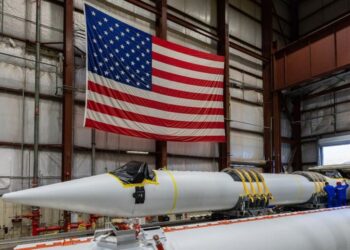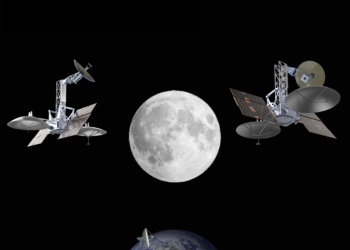Spacecom considers options for next round of financing
The Israeli operator Spacecom is set to send out a Request for Proposal for its Amos-6 satellite to a number of manufacturers over the next few months, including one Israeli company.
The company is targeting a late 2012 launch for Amos-6, which will…
The Israeli operator Spacecom is set to send out a Request for Proposal for its Amos-6 satellite to a number of manufacturers over the next few months, including one Israeli company.
The company is targeting a late 2012 launch for Amos-6, which will operate from the 4W orbital position currently occupied by the Amos-2 and 3 satellites serving Spacecom’s core markets of Central Europe, Eastern Europe and Israel.
Spacecom vice president for business development, Omri Arnon, told SatelliteFinance that financing plans for the satellite were still under consideration, and that they could be combined with the remaining financing for the company’s Amos-4 satellite, which will also be launched in 2012.
“We expect Amos-6 to have an in-orbit cost of US$200m,” said Arnon. “We still need to raise another US$100m for the Amos-4 financing and now we’re considering whether to raise this sum in parts or as a whole. So, it’s possible that we would be looking at one financing of US$300m, but that has not been decided yet.”
In 2009, Spacecom secured US$140m financing for its Amos-5 satellite through loans from the Israeli funds Migdal and Amitim.
Arnon did not rule out the possibility of working with international banks for the Amos-6 financing. He said: “So far we’ve only used Israeli banks because we actually get better deals in Israel so far than we got from foreign banks.
“It’s not that we are averse to foreign banks, we would like to work with them, but they have to be competitive.”
In procuring Amos-5, Spacecom strayed away from its usual manufacturer, Israeli Aerospace Industries (IAI), in favour of a low cost offer from the Russian company ISS-Reshetnev.
For Amos-6, IAI will again be a contender, and Arnon explained how Spacecom views Israeli industry in the competitive context.
He said: “We’re a public company so we do what’s best for our shareholders. However, there are some benefits that the local manufacturers have on top of the quality they provide, which we may factor into the price. If it’s US$100 and US$101 for the IAI then we may factor in some additional benefits, but if it’s something that’s not worthwhile then we won’t do it.”
The way in which Spacecom satellites are built and launched means that the company will almost certainly have the option to pursue export credit backing for the Amos-6 financing. Its payloads are built by Thales, which opens up the COFACE route, and were the satellite bus manufactured by a US company that would pave the way for possible ExIm financing. Both possibilities are being considered by Spacecom.
Both Amos-6 and Amos-4 will carry Ka-band capacity. In the case of Amos-4, much of this capacity has already been sold to the Israeli government, but for Amos-6 Spacecom aims to provide broadband services to enterprise and consumer customers.
Arnon said: “Amos-6 is going to be different in the way of financing because we currently do not expect the government to buy pre-launch capacity, at least not in the sense that they bought on Amos-3 or Amos-4.”
By 2013, Spacecom will have five fully operational satellites in orbit, in addition to whatever lifespan remains on the old Amos-5i spacecraft, recently acquired from AsiaSat.
Arnon said that Spacecom would like to add to this total capacity, and that it is particularly focused on adding more capacity through joint ventures with other operators.








